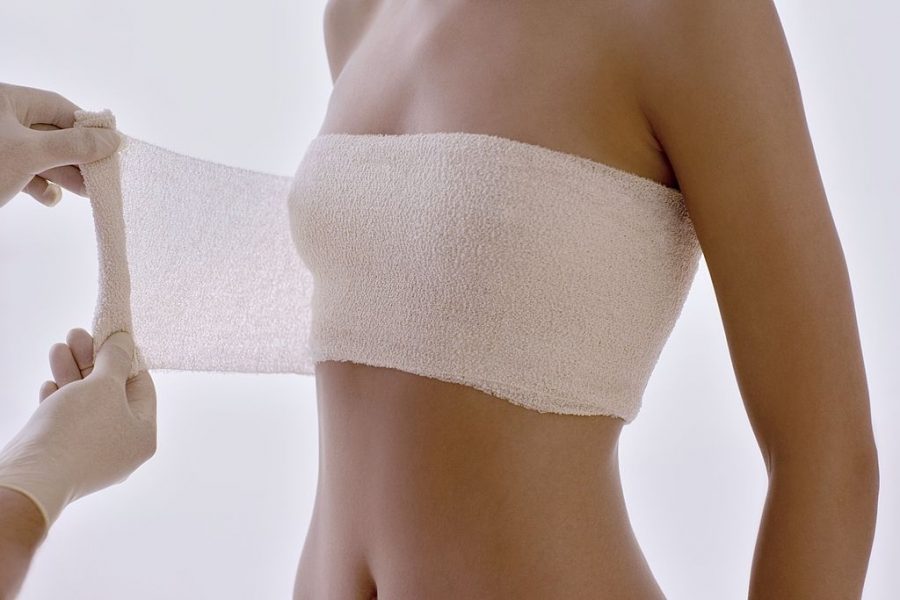Breast reduction, also known as reduction mammaplasty, is a plastic surgery procedure that removes excess breast fat, tissue, and skin to achieve a more proportionate breast size that is ideal for your body and to help relieve the discomfort associated with overly large breasts (macromastia). In addition to the physical ailments of both macromastia and gynecomastia, some patients may have emotional distress or more serious mental health problems due to their condition.
Choosing a Plastic Surgeon
If you are planning to have a breast reduction, it is important to choose a board-certified plastic surgeon to ensure that he/she is trained and the plastic surgery procedure takes place in an accredited facility for your own safety and to make sure that after surgery it helps alleviate your discomfort caused by large breasts and create a more naturally beautiful breast shape that looks better with your body.
Benefits of Breast Reduction
Since most patients choose breast reduction to relieve physical symptoms such as back, neck or shoulder pain, shoulder swelling, or distress during exercise, the benefits of breast reduction surgery should not be overlooked:
Relief of Back, Neck and Shoulder Pain
Women with larger breasts often experience musculoskeletal issues that end up causing strain on the back, neck, and shoulders. Consistent strain over time can lead to pain, pinched nerves, and may cause migraines, numbness in the arms, and degenerative disk disease in more serious cases. But don’t worry after surgery it can give you near-immediate relief and will highly improve many people’s quality of life.
Increase Activity and Improve Physical Fitness
Larger breasts can often restrict movement and trigger pain and discomfort during high-impact physical activities such as running, dancing, and other exercises like Crossfit for example. It often makes your work out almost impossible because of the excess weight of the chest, curved spine, and undesired movement when moving excessively.
As a result, most women with larger breasts do not engage in physical activity at all due to this condition. Breast reduction surgery is meant to reduce the weight and size of your breast, that will help you straighten your spine and reduce the pressure on your back, head, neck, and shoulder.
Help Improve Self-Image
When you are experiencing constant pain or discomfort it can be extremely difficult to feel good about yourself. These issues caused by oversized breasts can lead to various issues that are often troubling or upsetting for many women. With the help of breast reduction surgery, it will be less stressful to shop for clothing and undergarments that can result in a more positive outlook on your appearance. In conclusion, a breast lift procedure is performed resulting in a smaller breast that is lighter as well as more firm and improvement in self-esteem.
Breast Reduction Procedure
- The plastic surgeon will use a marker to draw guidelines for incisions prior to breast reduction surgery. In order to determine the exact incision pattern, the surgeon will measure the size of the breasts, the position of the nipples, and the preferences of the person.
- Your plastic surgeon will give you medications such as intravenous sedation and general anesthesia prescribed to provide relaxation during breast reduction surgery. Your surgeon will determine the best choice for you.
- The surgeon starts by making an incision around the areola, then proceeds with the incision underneath the breast, at which point the excess skin can be removed from both sides of the breast.
- After finishing the incisions, the plastic surgeon will reposition the nipple and areola, remove excess breast tissue, and lift and reshape the remaining tissue. In some rare cases, for extremely large breasts, the surgeon may recommend removing the nipple and areola then transplanted to a higher position on the breast.
- The surgeon or nurse will wrap the breasts in gauze bandages after the procedure.
- You can see the immediate results of your breast reduction surgery after the surgery. Post-surgical inflammation will be reduced over time and incision marks will disappear. As you continue to recover over time, you’ll be satisfied with your new image.
How to recover from Breast Reduction Surgery
- When your breast reduction surgery is completed, the nurse will apply a bandage to the incisions. Additionally, they may recommend wearing an elastic bandage or support bra to minimize swelling and support the breasts as they recover.
- Avoid stretching, high-intensity workouts, and lifting heavy objects for up to 6 weeks after the procedure.
- Avoid wearing a seatbelt until it’s no longer painful, it may take several weeks.
- When it comes to stitches, they must be removed within a week or 2 unless they are dissolvable.
- Use the medications suggested being used or taken orally for better healing and lower the risk of infection.
- Make time to follow-up with your plastic surgeon and don’t be afraid of asking specific questions about what you should do and expect during your recovery period.
First Week After the Surgery
Make sure to have some assistance in the days right after your breast reduction surgery, assign a family member or a friend who can assist you all day long. In addition, make sure that you are comfortable with him/her because you’re going to need some help with washing and bathing. It is impossible for you to raise your arms without any pain.
Several Weeks After the Surgery
In addition, your breasts will be tender, swelling and bruising will disappear, and you may experience some itching and dryness as the surgical area recovers. Once the gauze and dressings have been removed, a plastic surgeon will recommend that you wear a surgical bra for the next few weeks to control the swelling and keep the breasts in proper alignment to allow the tissue to conform to the desired contour.
Make sure you choose a licensed and accredited plastic surgeon to ensure your safety and get the best results for breast reduction. Also, remember don’t be afraid to ask questions after surgery to assist your surgeon to guide you through your entire recovery process.



